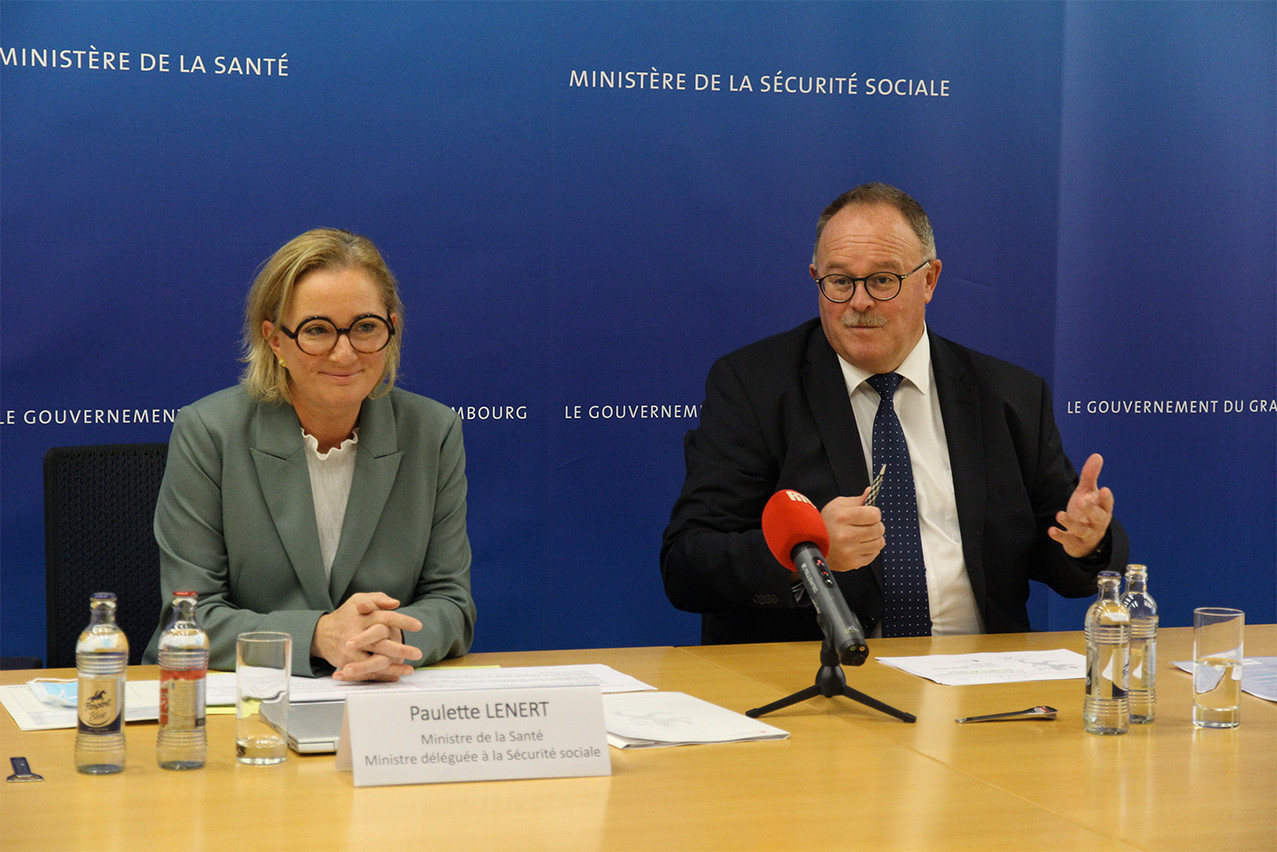"About 1,000 people are concerned, but we cannot have a precise figure. Our aim is to ensure access to basic health care for particularly vulnerable people living in our society without compulsory membership", explained Social Security Minister Romain Schneider (LSAP).
Proposed by Ronnen Dësch--an informal platform of institutions and associations involved in the reception and support of refugees--this universal healthcare coverage is included in the 2018-2023 coalition agreement. "The idea is that there should be no stigmatisation of vulnerable people", added Health Minister Paulette Lenert (LSAP), who was also present at the press conference. This coverage, which is to be implemented from 2022, is entirely financed by the state, with a budget of €2.7m.
The people this is intended for are those living “usually on the national territory, who have no source of income and who are not eligible for support from a social welfare office or another public entity. Entitlement to support is granted after three months in order to avoid abuse of health insurance benefits,” adds Romain Schneider.
Four partner associations
Voluntary affiliation to the health insurance scheme will be paid for by the State, at a cost of €120 per month per family. “Registration will be based on an application for admission to the Joint Social Security Centre with the aim of reaching out to vulnerable people, not the other way around,” he said. The associations that have signed an agreement with the Ministry of Health--CNDS, Stëmm vun der Strooss, Médecins du Monde and Jugend an Drogenhëllef--will receive additional financial and human resources to ensure regular follow-up and to take charge of the monthly contributions and personal participation of the beneficiaries, if necessary. "A social worker will be recruited for each association, i.e. four," added Paulette Lenert.
And, pending the introduction of immediate direct payment in 2023, "a simple procedure will be proposed to allow access to benefits without the vulnerable person having to advance the costs in relation to a bill of fees in the case of doctors and dentists,” concluded Romain Schneider.
This story was first published in French on . It has been translated and edited for Delano.
